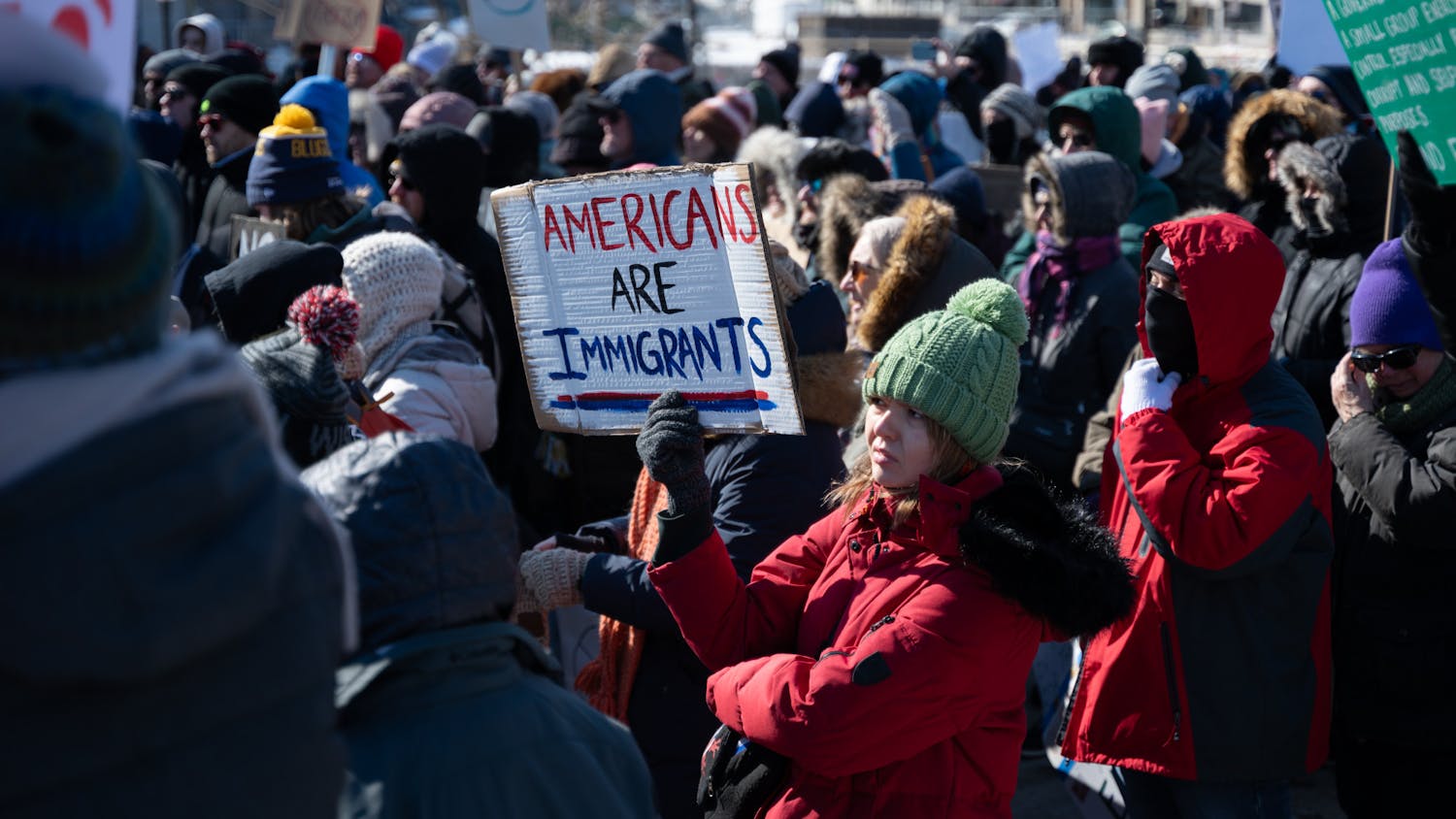University of Wisconsin System President Jay Rothman and UW-Madison Chancellor Jennifer Mnookin emphasized the significant risks of President Donald Trump’s freeze on federal grants and loans at a UW Board of Regents meeting Thursday.
Their response to the memo, issued by the Office of Management and Budget in January, echoes those of many universities across the country as they grapple with the flurry of executive orders issued by the Trump administration.
While the grant and loan freeze was blocked in federal court and later temporarily rescinded, UW-Madison remains uncertain, recommending “reasonable caution” on federally funded hiring and expenditures.
Federal grants are the single largest source of revenue for UW-Madison, representing 25% of the university’s total funding, Mnookin told the Board.
“The speed and breadth are dramatic, to say the least,” Mnookin said of Trump’s executive actions. Mnookin warned the potential loss of funding will pose significant threats to the aspects of the university’s mission, calling the uncertainties “dark clouds on the horizon.”
UW-Madison is designated as an R1 Research University, according to the Carnegie Classification of Higher Education. One of the classifications needed to earn R1 status is at least $5 million in annual research spending.
UW-Madison spends $18.8 million in federal research expenditures weekly, Mnookin said.
In addition to the impacts on research spending, Mnookin also spoke of the impacts of Trump’s actions on scientific research, specifically the vagueness surrounding diversity, equity and inclusion programs and climate change. Because of this, federal dollars from the National Science Foundation and the National Institutes of Health are at risk, pausing some new and ongoing research.
“There is disconcerting clawback on already awarded but unspent dollars spent on DEI and sustainability,” Mnookin said.
Rothman shared Mnookin’s concerns about the loss of federal funding and its impact on student financial aid. At UW-Madison, the Bucky’s Tuition Promise and Bucky’s Pell Pathway programs have given Wisconsin students more access to university education. The temporary pause of federal grants and loans will not apply to the current semester’s federal student financial aid, including Pell grants and direct student loans, UW-Madison said in a statement last week.
Despite the uncertainty the executive actions may bring to UW System funding, Rothman vowed to “protect the asset that is the Universities of Wisconsin.”
One part of that protection includes the creation of a working group of experts to give timely and accurate communications regarding the “already fast-moving agenda being rolled out,” Rothman said. All universities in the UW System will have a liaison to this group.
At UW-Madison, Mnookin said she has also been directing and coordinating a working group of experts both in Madison and Washington to prepare for future executive actions.
“It is not an easy time for higher education,” Mnookin said. “Not here in Wisconsin, not here at UW-Madison, not anywhere.”
State funding
In his speech, Rothman also touched on the fact that UW-Madison is in the bottom 10 in state funding for its universities.
“Universities have been neglected for far too long,” Rothman said. “We know that education changes the trajectory of people's lives. What we are advocating for is getting more money.”
As the biennial budget season draws near, Rothman said focusing on budget requests would be a priority, citing the system’s request for an increase in funding of $855 million.
Rothman also presented an advertising push aimed at local communities as part of a larger campaign to underscore the partnership between local businesses and various UW campuses.
“The universities of Wisconsin should not be considered an expenditure,” Rothman said. “When our public universities are strong, Wisconsin is stronger.”






